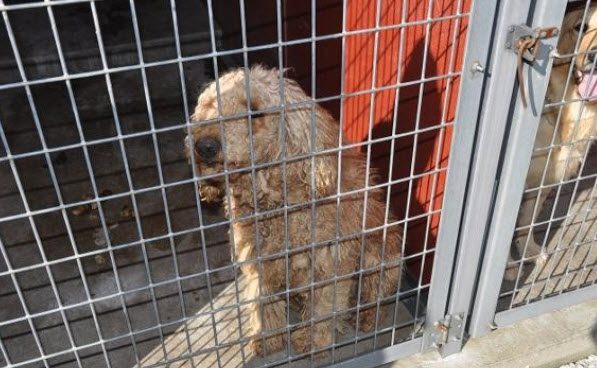Amish and Mennonite communities in Indiana
The Amish are well known for fresh baked goods, hand-crafted furniture but, in the past five years, records show these communities are expanding into the profitable dog breeding business. These kennels (puppy farms) could have anywhere from 20 to 500 or more breeding dogs. Destinations for the puppies used to be pet stores but, with the internet sale of puppies skyrocketing, it is estimated there are now over a million puppies sold online each year.
In Indiana, there is a prevalence of Amish and Mennonites living in the northeastern, Shipshewana area, as well as the southwestern corner of the state. Mid-state regions, like Montgomery and Wayne counties, also have Amish and Mennonite communities. High concentrations of commercial puppy farms as well as large guinea pig farms have been documented within all of these communities.
Indiana dog breeders on the rise
In 2016, Stop Online Puppy Mills mapped out the USDA dog breeders in Illinois and the USDA dog breeders in Indiana. In those reports, we also included the number of adult breeding dogs and puppies on the breeder’s property at the time of the inspections. Our updated 2021 maps show rising numbers of USDA commercial dog breeders located in Amish and Mennonite communities in both states.
People are flocking to the internet to find their new puppies and Amish and Mennonite dog breeders are cashing in. Look at these statistics from the USDA in 2016. Before the internet sale of puppies took off, the State of Indiana had 152 licensed USDA dog breeders holding a total of 5,908 adult breeding dogs in their barns. In the past 5 years, large puppy selling “broker” websites, such as Lancaster Puppies, Greenfield Puppies, Next Day Pets, Dogsnow, PuppyFind, Preimer Puppies, MyGoldenretrieverpuppies.com, Crockett Doodles and PuppySpot, have become an alternative to purchasing a puppy in a pet store. The Amish and Mennonite dog breeders are front and center to supplying puppies to many of these sites.
In Indiana, commercial dog breeders have more than doubled in the Amish and Mennonite counties in the past 5 years. As of September 2021, there are now 383 registered USDA Indiana dog breeders and brokers in the State of Indiana, versus 152, 5 years ago. These kennels now hold over 10,855 adult breeding dogs. Sadly, according to the inspection records, most of these breeders had not been inspected in over two years, and chances are these kennels have higher numbers of breeding dogs in them currently. It is common knowledge that USDA standards of care are very low. Dogs can spend their lives stacked in cages, living in dark barns with little to no vet care. Add the Bernedoodle, Sheepadoodle, Mini Goldendoodle puppy craze to the mix along with the artificial insemination of female dogs and hands on collection of semen from male dogs by these breeders and you can only imagine what the dogs in these facilities go through.
Why are Amish and Mennonite communities now breeding more puppies and baking less pies? The answer to this question is simple-it’s the money! These breeders are now building state of the art barns with automatic feeding and watering lines, some have automatic cleaning systems and large whelping rooms. It’s a very lucrative business. In fact, we have been told by an employee who works for a very large online, puppy-selling website that the Amish in the Shipshewana area of Indiana, share a barn or “phone shanty” with phone lines dedicated to filling orders, supplying puppies for their website demands. It’s a huge business.
Lastly, these businesses mostly operate on the sales tactic of directly shipping puppies to the customers or meeting the breeder in a parking lot. Some will not give you breeder information until your puppy arrives home. These are distractions, that keep the costumer from meeting the mother dog and seeing where she and all the breeding dogs live. If they won’t let you meet the mother dog, see her physical and mental condition and see where she and all of the dogs live. Walk away or you could be supporting a puppy mill.








